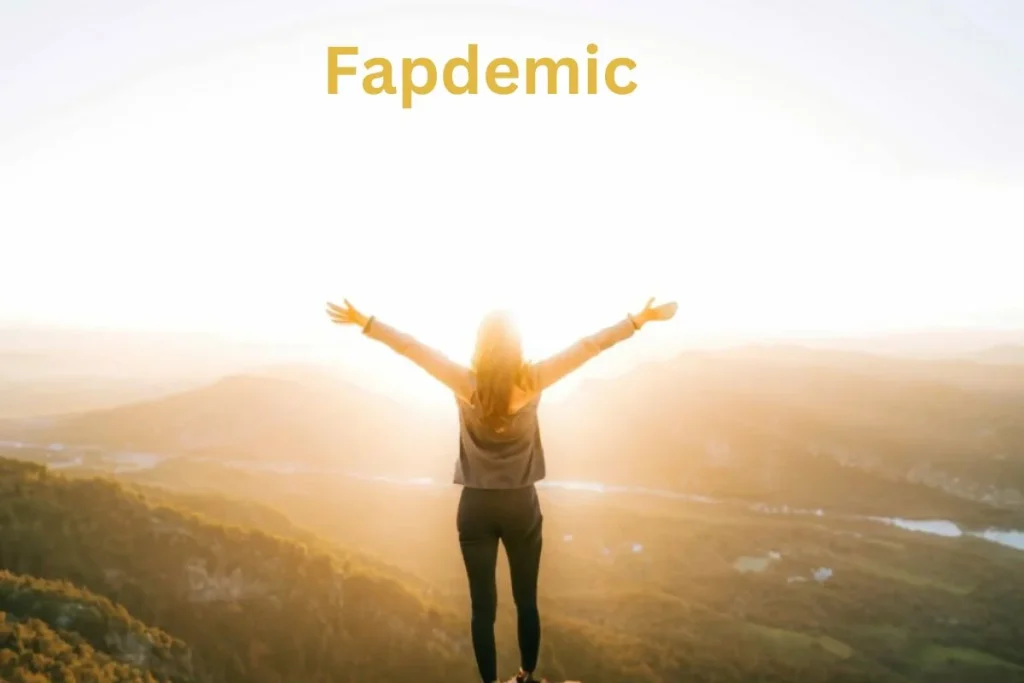In today’s digital age, where content is instantly accessible, societal concerns over compulsive behaviors tied to adult content consumption have risen dramatically. This has given rise to the term “Fapdemic,” a portmanteau of “fap” (slang for self-stimulation) and “epidemic” (indicating widespread prevalence). The Fapdemic refers to the pervasive issue of excessive adult content consumption and its associated impacts on mental health, productivity, relationships, and societal engagement.
This article delves into the root causes of the Fapdemic, its far-reaching consequences, and potential strategies to address this growing concern.
What Is the Fapdemic?
The Fapdemic isn’t an officially recognized term in medical or psychological literature, but it aptly describes a modern societal trend. It highlights the problem of individuals engaging in compulsive behaviors related to consuming explicit content. While occasional use of adult material is common and often considered harmless, excessive consumption can lead to significant personal and social challenges.
Key Characteristics
- Compulsive Behavior: Inability to moderate or control consumption.
- Negative Impact on Life: Impairments in daily functioning, such as reduced productivity or strained relationships.
- Mental Health Struggles: Increased anxiety, depression, and feelings of shame or guilt.
Why Has the Fapdemic Emerged?
1. Instant Gratification Culture
The digital world has enabled unprecedented access to explicit material. With everything a click away, individuals are conditioned to seek immediate satisfaction, often without considering long-term consequences.
2. Accessibility of Technology
Smartphones, high-speed internet, and anonymous platforms have made adult content easily accessible to virtually anyone, further normalizing consumption.
3. Lack of Awareness
Many individuals are unaware of the potential risks associated with excessive adult content use. This ignorance often results in unchecked habits that gradually escalate into compulsive behaviors.
4. Societal Pressures and Isolation
The Fapdemic has also been fueled by societal factors such as loneliness, relationship struggles, and the pressures of modern life. These issues often push individuals toward unhealthy coping mechanisms.
Impacts of the Fapdemic
1. Mental Health
Excessive consumption of adult content has been linked to several mental health concerns:
- Anxiety and Depression: Feelings of guilt or shame can contribute to mental health struggles.
- Low Self-Esteem: Unrealistic portrayals in adult media can create distorted self-perceptions.
2. Productivity
Many individuals report that excessive use negatively affects their focus and motivation, especially in academic or professional settings. The habit can consume significant amounts of time, leaving less for meaningful activities.
3. Relationships
- Unrealistic Expectations: Exposure to adult media can skew perceptions of intimacy, often leading to dissatisfaction in real-life relationships.
- Decreased Connection: Over-reliance on such content may reduce emotional and physical engagement with partners.
4. Social Isolation
A growing dependence on digital gratification often leads to withdrawal from real-world interactions, fostering isolation and loneliness.
Addressing the Fapdemic: Strategies for Recovery
1. Recognizing the Problem
The first step is awareness. Understanding the potential harms of excessive adult content consumption can help individuals take the problem seriously.
2. Setting Boundaries
- Screen Time Limits: Restrict time spent on devices, particularly during vulnerable hours.
- Blocking Tools: Use apps or browser extensions that restrict access to adult content.
3. Seeking Professional Help
For those struggling to regain control, therapy can be highly beneficial:
- Cognitive Behavioral Therapy (CBT): Helps address compulsive behaviors and underlying issues.
- Support Groups: Engaging with others facing similar challenges can foster accountability and provide encouragement.
4. Building Healthy Habits
- Physical Activity: Exercise is a proven way to improve mental health and reduce cravings for instant gratification.
- Mindfulness Practices: Techniques like meditation can help individuals manage impulses and reduce stress.
5. Strengthening Real-Life Relationships
Developing deeper connections with family, friends, or romantic partners can offer the emotional support and intimacy many individuals seek through digital means.
FAQs About the Fapdemic
1. Is adult content always harmful?
No, moderate and consensual consumption is not inherently harmful. Problems arise when usage becomes excessive or compulsive, negatively impacting daily life.
2. How can I tell if I’m affected by the Fapdemic?
Signs include spending excessive time on adult content, feeling guilty about consumption, or noticing declines in productivity, mental health, or relationships.
3. Are there tools to help manage content consumption?
Yes, tools like parental controls, website blockers, and screen time trackers can help limit access and encourage healthier habits.
4. Can professional therapy help?
Absolutely. Therapies like CBT and support groups can be instrumental in addressing underlying issues and breaking compulsive cycles.
5. What are some healthy alternatives to reduce dependency?
Engage in hobbies, exercise, spend time with loved ones, or practice mindfulness to fulfill emotional needs without relying on digital gratification.
Conclusion
The Fapdemic is a reflection of modern society’s challenges with instant gratification, digital accessibility, and social disconnection. While the consumption of adult content isn’t inherently harmful, unchecked usage can lead to significant personal and societal consequences. By raising awareness, fostering healthy habits, and seeking support when necessary, individuals can mitigate the impacts of this growing phenomenon and work toward a more balanced, fulfilling life.

